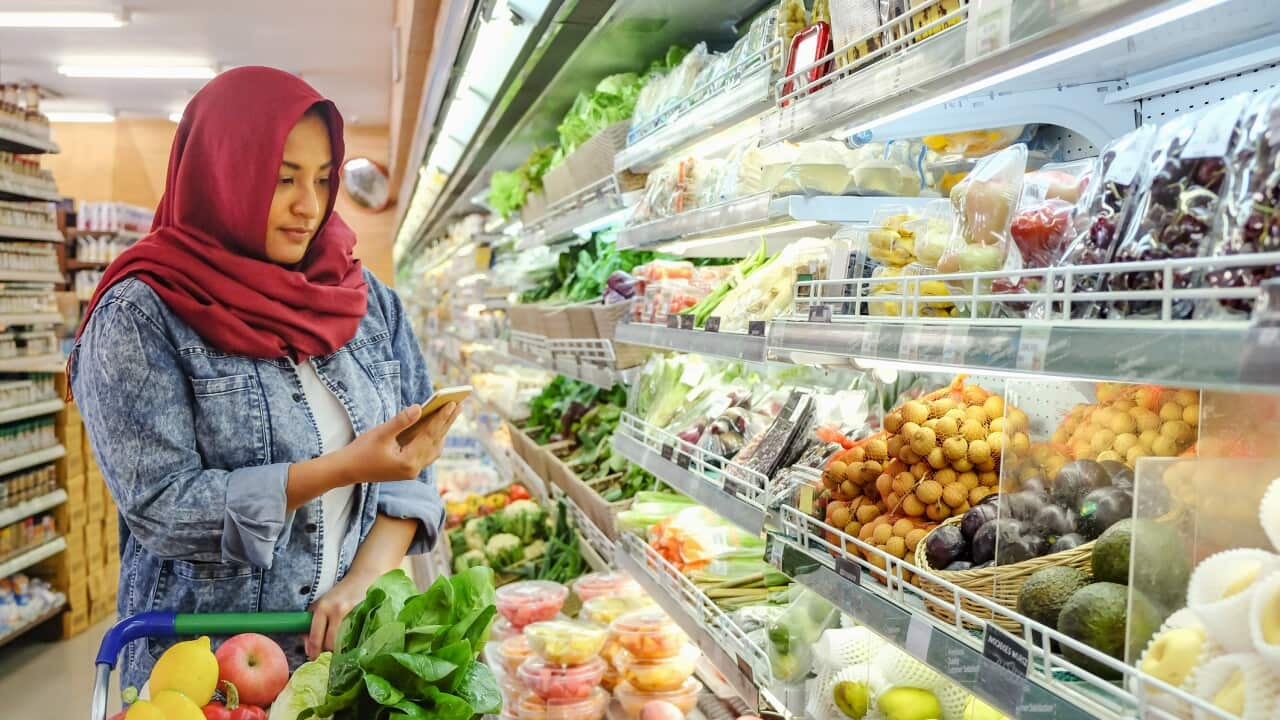Key Points
- Some families are prioritising basic food items over those which are considered a luxury, such as sweets.
- The high cost of living is pushing families to have a smaller Iftar menu and less guests.
- The prices of basic food items, such as vegetables, have increased dramatically.
Muslim families have told SBS Arabic24 that the rising cost of living is affecting their Iftar tables during the holy month of Ramadan this year.
Melburnian Saif Suleiman said that his family had felt the pinch as grocery prices increased by 30 per cent compared to previous years.

Saif Suleiman Credit: Saif Suleiman
Suleiman shared that Muslim families usually bought more food during Ramadan compared to other months of the year.
Sweets, rice, vegetables, fruits such as dates and, Middle Eastern salad ingredients are some of the items that make up an Iftar grocery list.

Sweets, rice, vegetables and fruits such as dates are common foods enjoyed during Iftar. Source: Moment RF / Jasmin Merdan/Getty Images
"I think we need to be smart when it comes to shopping. We should compare goods and buy the cheapest available," he said.
"We should [prioritise] basic food items and, [forgo] luxurious items such as sweets, although they are symbolic on the Iftar table."
On the other hand, the Alattabi family of New South Wales say they will be inviting less guests to the table this year due to the high cost of food.
Alia Alattabi told SBS Arabic24 that they would have less extended family for gatherings this year compared to the last two years.
Alattabi also mentioned that should her family be invited for a gathering, she would insist they bring a plate.
If a friend invites us over, we will bring a plate or buy sweets.Alia Alattabi
Morsy Danik, of Newcastle, stated that the prices of basic food items, such as vegetables, had also gone up this year.
"Considering our income, the food items have become very expensive," he said.
"For example, cauliflower is about $8 per kilogram."
He said he had been very surprised by the increases, considering that Australia was an agricultural country.
"We feel that food was more affordable in previous years," he said.
"This Ramadan is different when it comes to what families can offer on their Iftar tables."




